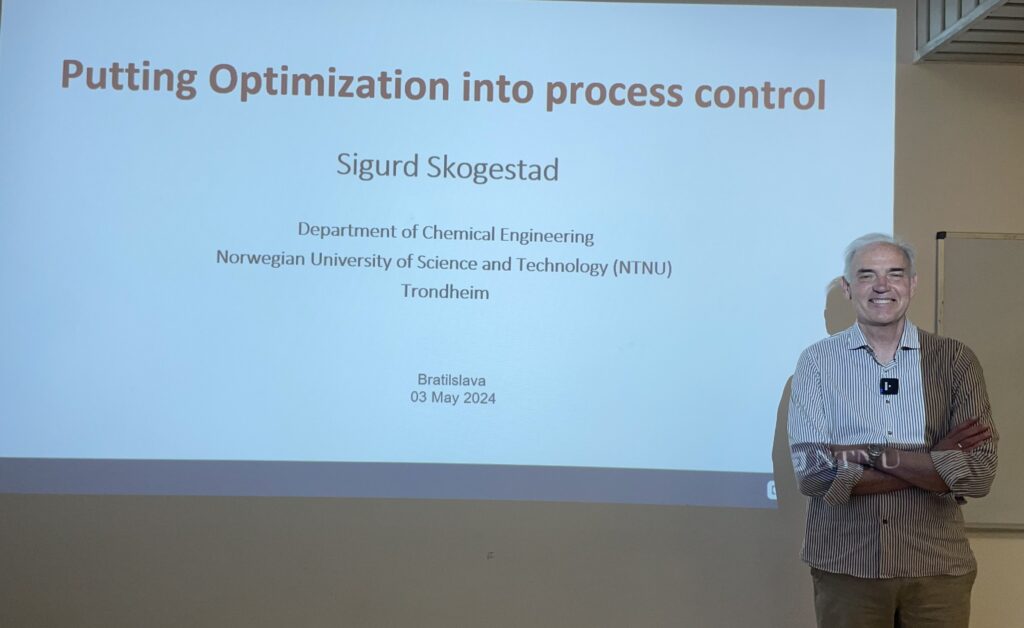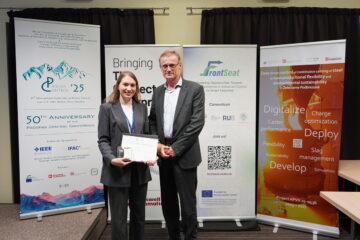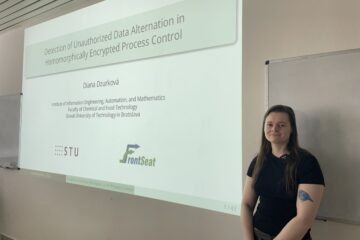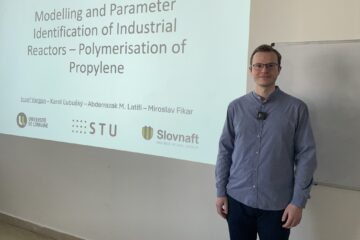On May 3, we organized a scientific seminar on “Putting Optimization into Process Control“. Sigurd Skogestad, a professor at the Norwegian University of Science and Technology (NTNU), Trondheim, Norway, led the seminar, which was organized in the framework of the FrontSeat project as part of the seminar series on “Research Seminar on Smart Cybernetics.”

Abstract:
– How can you control a complex plant effectively using simple elements with a minimal amount of modeling?
– How can you put optimization into the control layer?
The industry has been using simple and effective “advanced regulatory control” (ARC) schemes based on PID controllers for almost 100 years. The objective of my work is to provide a systematic approach for designing such control systems.
The main competitor to ARC is MPC (model predictive control), but the costs of implementing and maintaining MPC solutions are high. Moreover, in most cases, ARC solutions (including cascade, ratio, split range, and selector control) are more flexible and easier to tune. The main problem right now is that the knowledge and competence about ARC strategies are very low, especially in academia, but also in industry, the knowledge is dying out. The result is that people turn off good ARC applications, simply because they don’t understand what they are doing.
The reason for the lack of training and knowledge is that there has been a belief in academia since the 1980s that ARC solutions (and PID control) are old-fashioned and will soon be replaced by MPC. However, MPC has now been around for 50 years, and yet the use of MPC is far from increasing as expected. The latest hype is that, if MPC is too complex, then machine learning is the solution. No, it is not, because of the lack of rich data (with sufficiently large input excitations) in most control applications, in particular in process control.
In summary, there is a need to change the mindset of people, both in academia and industry, People need to realize that ARC solutions should be a central part of the future. MPC, of course, has its place, but mainly as an improvement for large-scale applications that can afford the effort.
The talk will emphasize the above points and, in addition, present a systematic approach to ARC methods based on my recent paper (which is open access).
Reference: Sigurd Skogestad, ”Advanced control using decomposition and simple elements”.
Published in: Annual Reviews in Control, vol. 56 (2023), Article 100903 (44 pages).
About the speaker:
Sigurd Skogestad is a Professor of chemical engineering at the Norwegian University of Science and Technology (NTNU) in Trondheim. He received his PhD from Caltech in 1987, and he is the principal author together with Ian Postlethwaite of the book “Multivariable Feedback Control” published by Wiley in 1996 (first edition) and 2005 (second edition). The goal of his research is to develop simple yet rigorous methods to solve problems of engineering significance. Research interests include the use of feedback as a tool to (1) reduce uncertainty (including robust control), (2) change the system dynamics (including stabilization), and (3) generally make the system more well-behaved (including self-optimizing control). Other interests include limitations on performance in linear systems, control structure design, and plantwide control, interactions between process design and control, and distillation column design, control, and dynamics. His other main interests are mountain skiing (cross country), orienteering (running around with a map), and grouse hunting.
This project has received funding from the European Union’s Horizon under grant no. 101079342 (Fostering Opportunities Towards Slovak Excellence in Advanced Control for Smart Industries).





0 Comments